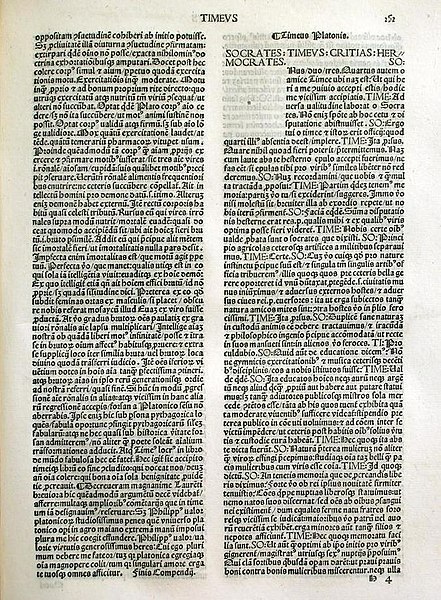Orichalcum or aurichalcum is a metal mentioned in several ancient writings, including the story of Atlantis in the Critias of Plato. Within the dialogue, Critias says that orichalcum had been considered second only to gold in value and had been found and mined in many parts of Atlantis in ancient times, but that by Critias's own time, orichalcum was known only by name.
A bronze sestertius coin from the time of Caligula
Orichalcum found at Gela, Sicily.
Atlantis is a fictional island mentioned in Plato's works Timaeus and Critias as part of an allegory on the hubris of nations. In the story, Atlantis is described as a naval empire that ruled all Western parts of the known world, making it the literary counter-image of the Achaemenid Empire. After an ill-fated attempt to conquer "Ancient Athens," Atlantis falls out of favor with the deities and submerges into the Atlantic Ocean. Since Plato describes Athens as resembling his ideal state in the Republic, the Atlantis story is meant to bear witness to the superiority of his concept of a state.
A fifteenth-century Latin translation of Plato's Timaeus
A Faroe Islands postage stamp honoring Janus Djurhuus's poem "Atlantis"
François de Nomé's The Fall of Atlantis
Nicholas Roerich's The Last of Atlantis






